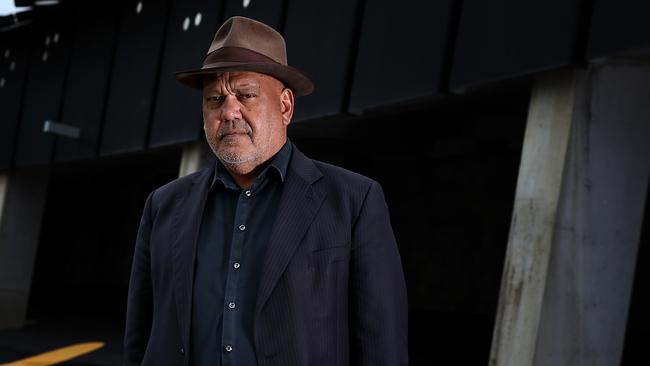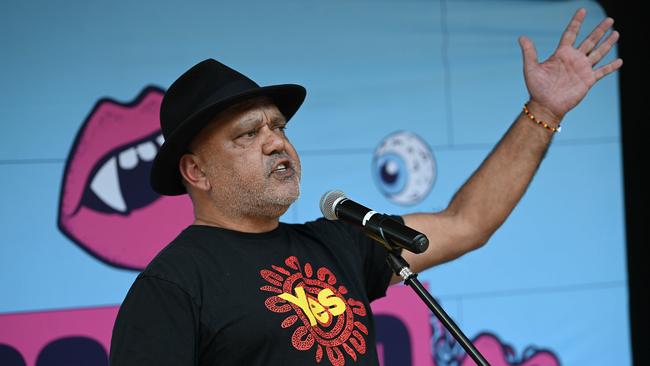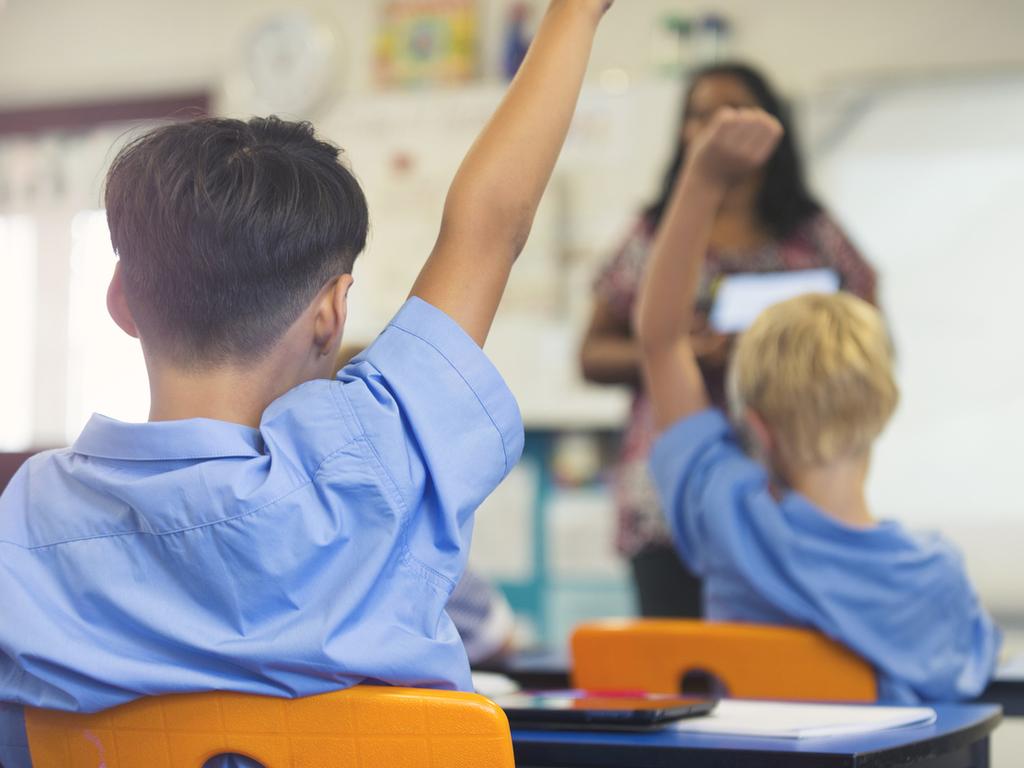Aboriginal leader Noel Pearson demands simpler school curriculum
Aboriginal leader Noel Pearson has called for a simpler national curriculum: ‘How the hell did they come up with this?’

Aboriginal leader Noel Pearson has criticised the mandatory teaching of Indigenous issues in every school subject and called for a better national curriculum.
Mr Pearson said Aboriginal and Torres Strait Islander history and culture should be explicitly taught at school – just not in every subject area.
“The approach that has been adopted is to infuse everything you do with those so-called cross-curriculum priorities,’’ the respected leader told The Australian.
“When you’re trying to work out how you include Indigenous content in the teaching of maths, for example, it just confuses the teachers.
“That, in my mind, is just one of the shortcomings of the national curriculum.’’
Mr Pearson is the founder and co-chair of Good to Great Schools Australia, an educational charity that develops free lesson plans used in more than 3000 schools, based on the successful teaching method known as explicit, or direct, instruction.
He said the national curriculum, which is due to be reviewed next year, supports failed teaching methods.
“The curriculum is expressed in a way that presupposes that children will be exposed to projects where they have to work these things out themselves – so-called discovery learning and inquiry based learning,’’ he said.
“It presupposes the teacher setting up an inquiry approach to the teaching, rather than a teacher-led instruction approach.
“And so we always have to work to interpret what the curriculum says, and ask, ‘What is the explicit instruction approach to meeting the standard?’ ’’
Mr Pearson criticised the “lowest common denominator’’ approach of the national curriculum, which was developed by the Australian Curriculum Assessment and Reporting Authority and signed off by the former Coalition government along with state and territory education ministers in 2022.
“You get a real sense of ‘How the hell did they come up with this in the curriculum, other than through a committee process?’ ’’ he said.
Mr Pearson said the new syllabus in NSW, which is knowledge-rich and clearly written, was “so much better’’ than the national curriculum.
“I’m not convinced that the solution lies in setting up another national committee process, and whether we’d get a better result than if the states were left to their own devices to come up with a better syllabus, as they have in NSW,’’ he said.

The mandatory teaching of the priorities across every subject has resulted in convoluted lesson plans, including maths lessons incorporating Aboriginal dance and basket-weaving.
Labor has promised Good to Great Schools Australia an extra $5m in federal funding over three years if it wins this weekend’s election. Federal Education Minister Jason Clare said the money would help develop the pipeline of teachers and teaching assistants in regional and remote Australia.
“The investment will also help to roll out Good to Great Schools Australia’s evidence-based teaching materials to more schools,’’ Mr Clare said.
Mr Pearson said the charity was focusing on the “holy grail’’ of direct instruction in mathematics.
“Maths instruction is a real challenge for Australian schools,’’ he said.
“We will keep creating resources to make available for time-poor teachers.
“By having quality instructional materials, you take a whole load off teachers so that rather than preparing lessons in the after-school hours, you’ve given them the resources so they can add their teaching magic.’’

“Something we’ve championed in Indigenous community schools we are now able to offer in mainstream schools,’’ he said.
“Some very, very prestigious private schools use direct instruction programs, so it was frustrating for me to see that so many successful schools were open to it and the disadvantaged public schools were not.’’
Mr Pearson said the explicit instruction of mathematics and English in primary schools “is absolutely crucial for secondary school retention’’.
“You can keep kids – you can child-mind them – pretty successfully in primary school without teaching them anything, but it all falls apart for you in secondary school because you cannot keep engaging them when they don’t know what’s going on,’’ he said.
“When they can feel no sense of achievement, when they see other students being literate and they’re not … other students are learning the maths and they’re not, that’s when you get disengagement, school refusal and street problems. That’s why you’ve got a youth justice problem … every kid in youth detention is a kid that struggles with literacy.’’
The Australian Curriculum, Assessment and Reporting Authority (ACARA) chief executive Stephen Gniel said the curriculum is due to be renewed in 2028, “with the review process starting in the coming years’’.
He said the cross-curriculum priority of First Nations history is only mandatory in the history curriculum.
“The curriculum’s support materials include, where relevant, content elaborations about Aboriginal and Torres Strait Islander Histories and Cultures,’’ he said.
“These support materials are provided to enrich the curriculum content in other subjects where teachers, who are the experts in the classroom, consider it is appropriate to do so.’’
The ACARA website states that the cross-curriculum priorities “are incorporated through learning content’’.
“They are not separate learning areas or subjects,’’ it states.
“They provide opportunities to enrich the content of learning areas, where most appropriate and authentic, allowing students to engage with and better understand their world.’’
The Australian Government Primary Principals Association has repeatedly complained that the existing curriculum is “impossible to teach’’, and that the cross-curriculum priorities add to teacher workloads.







To join the conversation, please log in. Don't have an account? Register
Join the conversation, you are commenting as Logout